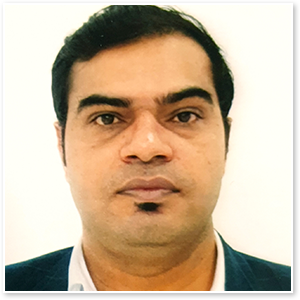Studies have shown that CO2 can be safely stored underground, such as in deep, porous rock formations, to solve issues related to carbon emissions. Formation rocks have the capacity to store carbon emissions, and this capacity depends on the rock type, depth, and fluids contained in the rock. CO2 geostorage has different trapping mechanisms with numerous factors influencing trapping potential, including geochemical and geomechanical effects and the associated seal integrity.
This Call for Papers aims to provide a platform for the scientific community to present their high-quality research in CO2 geostorage.
We invite Articles, Mini-Reviews, Reviews, or Perspectives on all topics relating to CO2 geostorage, including (but not limited to):
- CO2 trapping mechanisms
- CO2 injectivity
- Geomechanics and geochemistry for CO2 storage
- Storage capacity estimation
- Wellbore integrity for CO2 injection wells
- Containment security and monitoring tools
We welcome submissions for this Virtual Special Issue through 10 December 2023. All manuscripts will be peer-reviewed to ensure they fit the scope and meet the high scientific publishing standards of ACS Omega prior to acceptance.
If your paper is accepted, your work will be highlighted as a significant contribution to this growing field of exploration. As ACS Omega is a fully open access journal, your paper will be available to anyone, at anytime, anywhere in the world.
Accepted publications will go online as soon as possible after acceptance and be published in the next available issue. In the Fall of 2023, the publications on this topic will be gathered into a virtual special issue on a dedicated webpage and be promoted as a collection.
If you have any general questions regarding submission to this Virtual Special Issue, please contact Prof. Mohamed Mahmoud, Dr. Muhammad Arif, and Dr. Yihuai Zhang.
Article Publishing Charges apply for publication in this fully open access journal. For this information and on other discounts for authors, please visit the ACS Open Science pages.
How to submit
To submit for this Virtual Special Issue:
- Log in to the ACS Paragon Plus submission site
- Choose ACS Omega as your journal
- Select your manuscript type
- Under the ‘Special Issue Selection’, choose ‘CO2 Geostorage'.
The deadline for submissions is 10 December 2023.
About the Virtual Special Issue Editors



Prof. Mohamed Mahmoud is a Professor at the Department of Petroleum Engineering, King Fahd University of Petroleum & Minerals, Dhahran, Saudi Arabia. Prof. Mahmoud’s areas of research include reservoir productivity enhancement and advanced petrophysics. He has authored or coauthored several journal and conference papers and holds more than 100 US-granted patents, including several commercialized patents in the areas of productivity enhancement and formation damage removal. He is a member of the Society of Petroleum Engineers, the Society of Petrophysicists and Well Log Analysts, and the American Chemical Society. Prof. Mahmoud serves as an Associate Editor at ACS Omega.
Dr. Muhammad Arif is an Assistant Professor at the Petroleum Engineering Department of Khalifa University, Abu Dhabi, United Arab Emirates. Dr. Arif holds a Ph.D. in Petroleum Engineering from Curtin University, Australia. His research interests include enhanced oil recovery, CO2 and H2 geostorage, and unconventional reservoirs. He has published over 70 articles in reputable journals and has a citation H-index of 25, including publications in the top 1%-ranked journals. Dr. Arif currently serves as an Associate Editor at the Journal of Petroleum Science & Engineering (Geoenergy Science and Engineering), Elsevier. Dr. Arif was recently ranked in Stanford’s list of the top 2% of scientists in the world in the field of Energy.
Dr. Yihuai Zhang is a Lecturer (Assistant Professor) in Geo-energy Engineering at the University of Glasgow, UK. Dr. Zhang has pioneered the development of experimental methods, models, and theories for the coupled chemical-physical-mechanical changes in the host rock during fluid injection into the underground with application in carbon geosequestration, hydrogen storage, geothermal, and geo-energy resource recovery. He holds Ph.D. in Petroleum Engineering from Curtin University, Australia. According to the Google Scholar database, he has published 37 papers in high-ranking peer-reviewed journals with over 1,900 citations and an H-index of 26.
© 2025 American Chemical Society, 1155 16th St NW, Washington, DC 20036, USA. View our Privacy Policy



